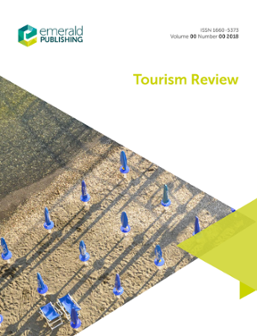Festivals and Events - (Re)Interpreting Cultural Identity
IF 7.3
2区 管理学
Q1 HOSPITALITY, LEISURE, SPORT & TOURISM
引用次数: 27
Abstract
The issues at stake in this paper namely concern the changes in the cultural identity representations of territorial landscapes as a result of increasing mobility of which tourism is but one of the numerous forms. The decision to focus on festivals and events is that: 1. Traditionally speaking, festivals and events are both the result and the signifiers of the cultural identity of spaces within which they occur; 2. In more recent years, they have increasingly been instrumented as a marketing tool in the development of tourist spaces as can be attested by the large body of tourist literature; 3. Beyond the emphasis placed by researchers on the economic impacts of events organization, there has been a growing interest in investigating their social impacts. 4. Limited attention has been paid to comparing the strategies of events organization, the way they intervene on cultural identity and the ensuing impacts on territorial development in general. Accordingly, it was decided that an investigation of regularly recurring events, which have become part of the territorial landscapes within which they occur, would be led to try and answer the following questions: 1. How do festivals and events contribute to staging the particularities of cultural identity within different spaces? 2. Are these festivals and events staged simultaneously to encourage greater mobilities to and within the given spaces and to devise better responses to the mobilities that have already modified them? 3. To what extent do festivals and events contribute to re‐interpreting cultural identity?节日和事件——(重新)诠释文化认同
本文所关注的问题是,由于流动性的增加,地域景观的文化认同表现形式发生了变化,而旅游业只是众多形式之一。关注节日和活动的决定是:1。传统上讲,节日和活动既是其发生的空间的文化认同的结果和象征;2. 近年来,它们越来越多地被用作旅游空间开发的一种营销工具,大量的旅游文献可以证明这一点;3.除了研究人员对活动组织的经济影响的重视之外,人们对调查活动组织的社会影响也越来越感兴趣。4. 比较活动组织的策略、它们对文化认同的干预方式以及随后对总体领土发展的影响的关注有限。因此,决定对经常发生的事件进行调查,这些事件已成为发生这些事件的领土景观的一部分,将试图回答下列问题:节日和活动是如何在不同的空间中呈现文化身份的特殊性的?2. 这些节日和活动是否同时举行,以鼓励更多的流动性到给定的空间,并设计更好的应对已经改变了他们的流动性?3.节日和活动在多大程度上有助于重新诠释文化身份?
本文章由计算机程序翻译,如有差异,请以英文原文为准。
求助全文
约1分钟内获得全文
求助全文
来源期刊

Tourism Review
HOSPITALITY, LEISURE, SPORT & TOURISM-
CiteScore
15.10
自引率
10.30%
发文量
51
期刊介绍:
Tourism Review (TR) holds the distinction of being the longest-established journal focused on tourism issues, pioneering cutting-edge research since 1947. Our mission is to deepen the comprehension of tourism and elevate the impact and significance of tourism research on global society.
TR publishes a wide spectrum of contributions including research papers, systematic literature reviews (state of the art), short interventions (perspective papers), and research innovations (cutting edge), fostering continuous advancement in the field.
 求助内容:
求助内容: 应助结果提醒方式:
应助结果提醒方式:


